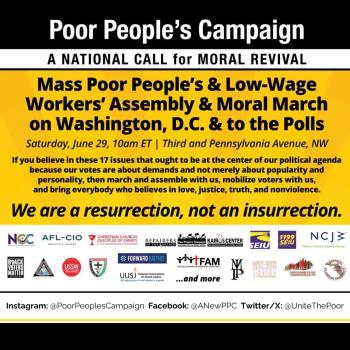Look at the United States, and according to the U.S. Census, here’s what you’ll see.
The average American is a woman. More than 75 percent of the country is white. More than 20 percent of the households speak a language other than English. The median household income is $53,000 and around 14 percent live in poverty.
When the conversation turns to faith, according to a new study from the Pew Research Center, 70 percent of the country remains Christian, but a growing number, nearly 23 percent, say they are religiously unaffiliated – “describing themselves as atheist, agnostic or ‘nothing in particular.’”
This is telling. But it appears to be telling different things to different people.
It’s good for evangelicals.
It’s bad for mainstream Christianity in the USA.
It certainly has a lot of people typing.
Are the findings of the study as dire as some are reporting?
Or is it simply dire for church boards and denominational leaders trying to keep the lights on and pay the heat bill in January as both younger people and their parents leave the church.
According to the study, “using the margins of error to calculate a probable range of estimates, it appears that the number of Christian adults in the U.S. has shrunk by somewhere between 2.8 million and 7.8 million.”
This shift away from Christianity is a growing, decades-long trend with roots in the cultural clashes of the 1960s and 70s. The shift has happened as the nation has shifted away from indoor malls, drive-in movie theaters, and downtown inner cities and towards gluten-free foods, Starbucks, and the suburbs.
And don’t forget Blue Laws. As businesses were able to open their doors on Sundays, church attendance diminished. People had other things to do on Sunday instead of church.
Americans don’t go to church as much as they did in years past, but increasingly, more people call themselves spiritual rather than Christian.
For example, Rob Bell, founder of Mars Hill Bible Church in Grandville, Michigan, has grown more ‘spiritual,’ and less ‘Christian,’ since leaving his church in 2012 and moving to Los Angeles.
The former Christian preacher is now a spiritual speaker.
In July, Bell will embark on a 31-city tour focusing on spirituality. According to his website: “wherever you’re coming from and whatever you’re wrestling with, let the Everything Is Spiritual tour experience inspire, provoke, challenge, and give you hope as we together explore and enjoy this beautiful, mysterious, and endlessly fascinating world we call home.” The tour experience offers hope, so maybe Jesus will make a guest appearance.
Perhaps Bell has grown beyond Christianity. Perhaps all the millions of people who have stopped attending Christian churches have attained a higher level of existence.
Perhaps.
Of course, more spirituality isn’t bad.
Decline in church attendance isn’t great when the sanctuary needs new carpet and the church budget has been cut by more than 25 percent in the past 15 years.
But if an increase in spirituality can soften hearts, open minds, and change how we interact with one another, that may be more important than new carpet in a room occupied for less than two hours a week.
Because, wouldn’t the world be better with fewer Christians like this

and more spiritual people like this?













